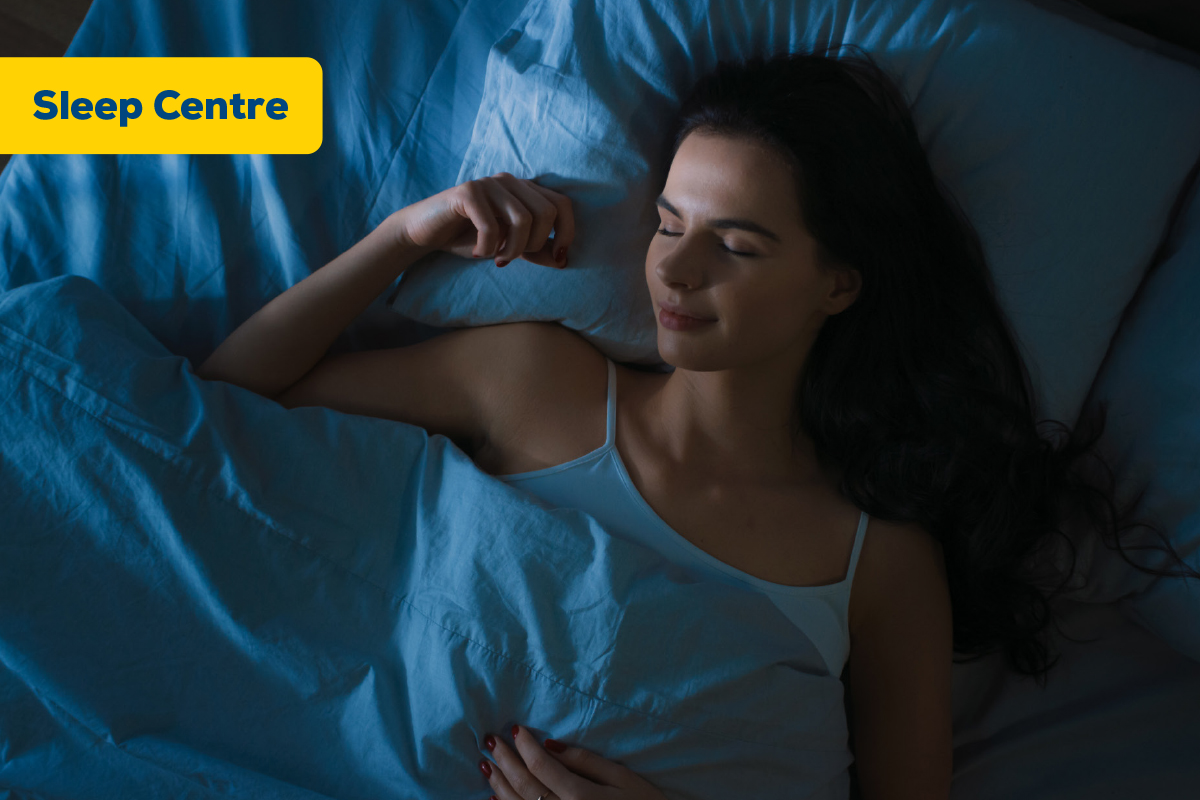Tips for a better nights rest
1 March 2022

Ahhh… a good night’s sleep. It’s one of life’s great joys, and in fact is one of the most essential components of a healthy lifestyle. For most people, between six and eight hours of sleep is ideal, and as we get older, we generally need fewer hours of sleep. But no matter how many hours of sleep we get each night, the quality of that sleep is critical.
We might think we’re getting a good deep sleep, but there are many habits we easily fall into that can impact on our slumber and leave us feeling tired in the morning. Thankfully, we can change many of those habits, and start to look forward to a proper rest at night.
Reduce caffeine
Coffee is without doubt part of life for most of us, but the caffeine levels will almost always affect our sleep if we indulge in a cuppa too close to bedtime. After all, caffeine is a highly effective brain stimulant. The optimum time to have your last coffee each day is usually an individual thing – some people stop at midday, others just before dinner. For most of us though, ideally we should ease back on the coffee, sometime around mid-afternoon to give our bodies time to work the caffeine out of our system.
Watch the alcohol...
Given that alcohol can make people feel sleepy, it might surprise many to discover that alcohol is actually not good for sleep quality. While it might get you off to sleep pretty quickly, too much alcohol, too close to bedtime can affect how well you sleep, so you miss out on the benefits of the deep cycle of your sleep pattern – the time when the body and mind really recharge.
...and the food
Similar to alcohol, too much rich food before bed can leave you feeling uncomfortable. This might not be apparent when you nod off, but can wake you up a few hours later with indigestion or bloating. Try to have a lighter meal in the evenings, or, if you have indulged in a rich dinner, go for walk shortly after if you can.
Stick to a sleep routine when you can
We often only think about our body clock when it’s disrupted, but it’s a powerful part of our everyday sleep patterns and quality. To work in with your body clock, try to go to bed around the same time each night if you can, and get up around the same time each morning. The human body loves routine, and by sticking to a regular sleep schedule, we can ‘train’ our sleep hormones to kick in when we actually want to go to sleep.
Create a calm sleep environment
The soothing ambience of a welcoming bedroom can play a major role in how our minds approach sleep time. Dimming the lights or using a bedside lamp, playing soft music or gentle nature sounds, even having the room tidy and the bed made, can all help create an environment that puts the brain into bedtime mode and prepares the mind for a restful sleep.
Turn off the screens
Laptops, phones, smart tablets and televisions create ‘blue’ light, which has been shown to stimulate the brain and of course, that’s not what you want before trying to go to sleep. Adding to this are the sub-conscious mental and emotional effects of checking social media and the news etc, that can get the mind whirring. Instead, turn the screens off and read, listen to soothing music, or meditate to calm the mind.
Exercise and be active
The positive effects of exercise on a good night’s sleep have been well-documented. If you can, try to get in some exercise during the day. Not only does it benefit sleep, but also your overall health.
Invest in a good quality pillow and mattress
Given that we spend around a third of our lives in bed, our pillow and mattress are the two household items we probably use more than any other. So, it’s vital that we choose a pillow and mattress that suits our body and sleep position preference. Spend time selecting a good quality mattress, and preferably one that you can try out for a month or two (a lot of companies now offer 100-day free trials). Also make sure your pillow is right for your sleeping position and shoulder size, and have pillows cleaned every few months and replace them every two years or so.
Have a sleep check-up
The great irony about sleep quality is that we rarely know exactly how well we’re sleeping because, well… we’re asleep at the time. Often a partner will notice if we’re snoring, grinding or clenching teeth, breathing irregularly, sleep talking or being restless. But sometimes, even these things can go unnoticed. A sleep assessment, such as one at our own purpose-built Sleep Centre, can help identify any problems and even diagnose potential issues that could seriously affect not you’re your own health and wellbeing, but those with whom you share a bedroom.
The Sleep Centre at Burnside Hospital offers comprehensive diagnostic and treatment services for the full spectrum of sleep disorders, delivering patients with individualised, holistic care.
Chat to your GP for more information on how we might be able to help you achieve a better nights rest.


